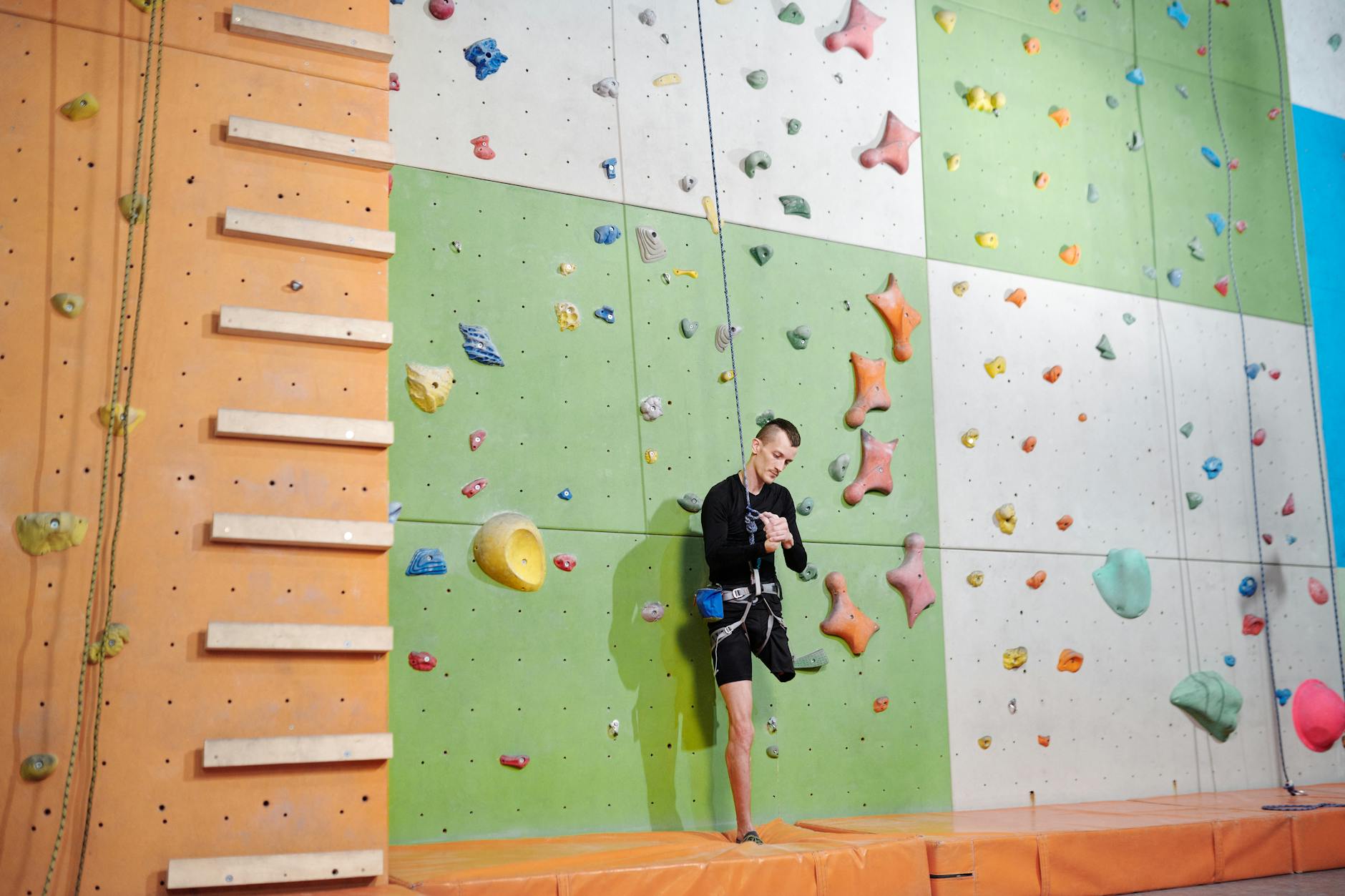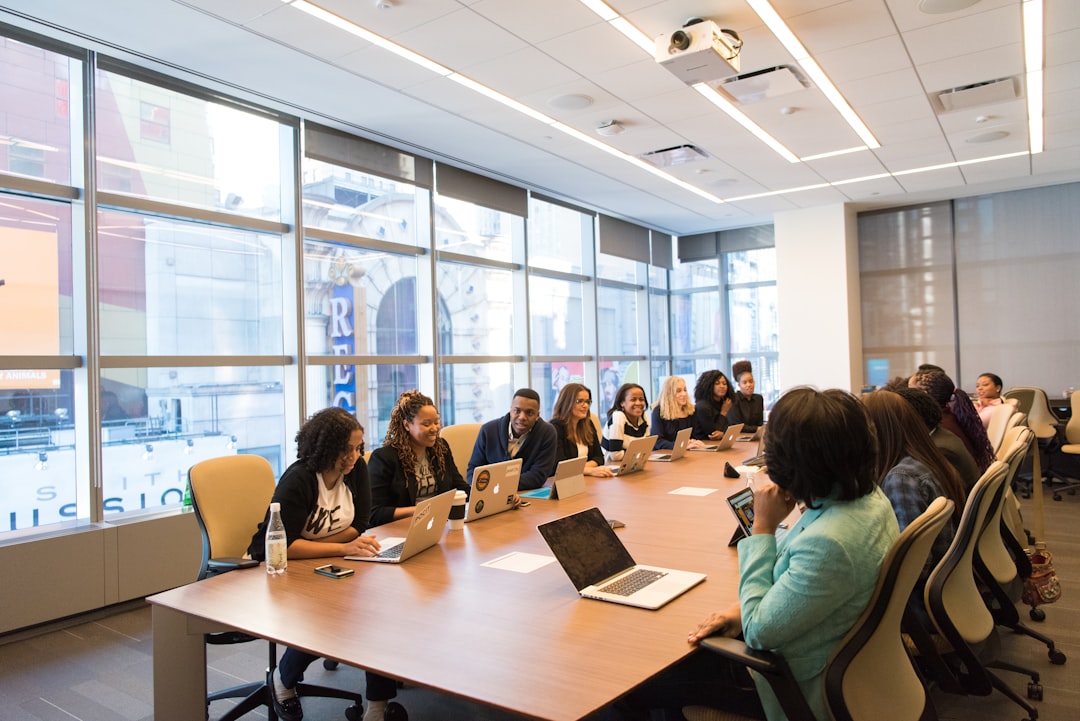The impact of mentality on personal growth and development is often underestimated. Our mindset plays a crucial role in shaping our experiences, achievements, and overall well-being. Having a positive and growth-oriented mindset empowers us to overcome obstacles, embrace challenges, and strive for continuous improvement. In this blog post, we will explore the profound influence of mentality on personal growth and development, and uncover strategies to cultivate a mindset that propels us towards success. Let's dive in.
Understanding Mentality and its Importance in Personal Growth
Mentality is a crucial aspect when it comes to personal growth and development. It influences our thoughts, attitudes, and behaviors, ultimately shaping our overall life experiences. In this section, we will delve into the concept of mentality and explore its significant role in personal growth.
Defining Mentality
Mentality can be defined as the set of beliefs, attitudes, and thought patterns that govern an individual's mindset and perspective on life. It encompasses how we perceive and interpret the world around us, as well as how we respond to various situations. Our mentality acts as a filter through which we process information and make decisions.
Having a positive mentality involves adopting an optimistic outlook, embracing challenges as opportunities for growth, and maintaining a resilient mindset. Conversely, a negative mentality is characterized by pessimism, self-doubt, and a tendency to focus on limitations and setbacks. It is important to note that mentality is not fixed and can be shaped and transformed through deliberate effort and self-awareness.
The Role of Mentality in Personal Growth
Mentality plays a pivotal role in personal growth, as it directly impacts our mindset, motivation, and ability to overcome obstacles. Here are some key ways in which mentality influences personal growth:
- Mindset Shifts: A growth mentality, characterized by the belief in one's ability to learn and improve, is essential for personal growth. It opens up doors to new opportunities, encourages experimentation, and fosters resilience in the face of setbacks. By adopting a growth mindset, individuals can embrace challenges, view failures as learning experiences, and strive for continuous self-improvement.
- Goal Setting and Achievement: A positive mentality empowers individuals to set meaningful goals and take the necessary steps towards achieving them. It fuels intrinsic motivation, boosts self-confidence, and enables individuals to persevere through obstacles. With the right mentality, individuals can develop effective strategies, stay focused, and celebrate progress along their personal growth journey.
- Emotional Resilience: Our mentality influences how we handle adversity and setbacks. With a positive mentality, individuals can develop emotional resilience, bouncing back from failures and setbacks with a renewed sense of determination. It allows for the cultivation of a growth-oriented perspective, where challenges are viewed as opportunities for learning and personal development.
- Decision Making: Mentality plays a crucial role in the decision-making process. A growth mentality encourages individuals to make decisions that align with their personal growth goals and values, even if it means stepping out of their comfort zones. It enables individuals to take calculated risks, embrace change, and pursue opportunities that facilitate their personal growth and development.
Overall, understanding and shaping our mentality is essential for personal growth. By cultivating a positive mindset, setting meaningful goals, and embracing challenges, we can unlock our full potential and embark on a transformative personal growth journey.

Photo by VH S
The Impact of a Growth Mindset on Personal Development
Understanding the Growth Mindset
In order to delve into the impact of a growth mindset on personal development, it is essential to first understand what a growth mindset is. Coined by psychologist Carol Dweck, the concept of a growth mindset refers to the belief that one's abilities and intelligence can be developed through effort, perseverance, and learning. Those with a growth mindset see challenges as opportunities for growth and view failures as stepping stones towards improvement. Contrastingly, individuals with a fixed mindset believe that their abilities are predetermined and unchangeable.
Benefits of Adopting a Growth Mindset
Embracing a growth mindset can have numerous positive effects on personal development. By cultivating this mindset, individuals open themselves up to a world of possibilities and self-improvement. Here are some key benefits of adopting a growth mindset:
- Resilience and Perseverance: A growth mindset encourages individuals to persist through challenges and setbacks, promoting a resilient attitude. This resilience allows them to bounce back from failures, learn from their mistakes, and approach future obstacles more effectively.
- Continuous Learning: Those with a growth mindset have an inherent desire to learn and develop their skills. They actively seek out new knowledge, strive for personal growth, and embrace opportunities for self-improvement. This thirst for learning enhances their overall development and enables them to reach greater heights.
- Increased Confidence: As individuals with a growth mindset understand that abilities can be developed over time, they have a stronger sense of self-confidence. They believe in their own capacity to learn and grow, leading to increased self-assurance and motivation to take on new challenges.
Developing a Growth Mindset
While some individuals may naturally possess a growth mindset, it is a mindset that can be developed and nurtured. Here are some strategies to cultivate a growth mindset:
- Embrace Challenges: View challenges as opportunities for growth rather than obstacles. Embrace the discomfort that comes with learning and see it as a chance to expand your abilities.
- Adopt a Positive Attitude: Cultivate a positive mindset and focus on the possibilities rather than limitations. Replace self-limiting beliefs with empowering thoughts that reinforce the idea of continuous growth.
- Learn from Failures: Embrace failures as learning experiences and opportunities for improvement. Analyze what went wrong, identify the lessons learned, and use those insights to adapt and grow.
- Seek Feedback: Actively seek feedback from others and be open to constructive criticism. Use feedback as a tool for growth and improvement, rather than taking it personally or seeing it as a reflection of your worth.
- Emphasize Effort and Process: Place value on the effort and process rather than solely on the outcome. Recognize that progress and growth occur through consistent effort and dedication.
Incorporating a growth mindset into your personal development journey can have a profound impact on your overall growth and success. By embracing challenges, learning from failures, and continuously seeking opportunities for improvement, you can unlock your true potential and achieve personal and professional growth.

Photo by Pixabay
The Power of Positive Thinking in Personal Growth
Exploring Positive Thinking
Positive thinking is a mindset that focuses on the optimistic side of life. It involves consciously shifting your thoughts and beliefs to a more positive and empowering perspective. Rather than dwelling on challenges and setbacks, positive thinking encourages you to see opportunities and possibilities in every situation.
Benefits of Positive Thinking
Embracing positive thinking can have a profound impact on personal growth and development. Here are some key benefits:
- Improved Mental Well-being: Positive thinking can enhance your overall mental well-being by reducing stress, anxiety, and depression. It helps you build resilience and cope better with life's challenges.
- Enhanced Motivation and Productivity: When you maintain a positive outlook, you cultivate a mindset of possibility and motivation. This, in turn, boosts your productivity and helps you achieve your goals more efficiently.
- Better Relationships: Positive thinking can improve your relationships with others. It enables you to approach interactions with openness, empathy, and understanding, fostering deeper connections and greater harmony in your personal and professional relationships.
- Increased Self-Confidence: Adopting positive thinking allows you to develop a stronger sense of self-belief and self-worth. By focusing on your strengths and envisioning success, you enhance your self-confidence and become more proactive in pursuing your dreams.
Techniques to Cultivate Positive Thinking
Cultivating positive thinking is a practice that can be developed over time. Here are some effective techniques to embrace a more positive mindset:
- Self-Awareness: Start by consciously monitoring your thoughts and identifying negative patterns. Awareness is the first step in reshaping your thinking.
- Positive Affirmations: Use positive affirmations to rewire your subconscious mind. Repeat affirmations such as "I am capable," "I attract positivity," or "I am deserving of success" to reinforce positive beliefs.
- Gratitude Practice: Regularly express gratitude for the blessings in your life. This practice shifts your focus from what's going wrong to what's going right, fostering positivity.
- Surround Yourself with Positivity: Surround yourself with positive people, read inspiring books, and consume uplifting content. The more you expose yourself to positivity, the easier it becomes to adopt a positive mindset.
- Challenge Negative Thoughts: Whenever negative thoughts arise, challenge them by questioning their validity. Replace them with more empowering and positive thoughts.
- Visualization Techniques: Visualize yourself achieving your goals and living your desired life. Engaging your imagination in positive scenarios helps program your mind for success.

Photo by Monstera Production
By incorporating the power of positive thinking into your life, you can unlock your true potential and experience personal growth like never before. Embrace the mindset of positivity and witness the transformative effects it can have on your happiness, success, and overall well-being.
Overcoming Limiting Beliefs for Personal Development
Identifying Limiting Beliefs
Limiting beliefs are deeply ingrained thoughts or perceptions that hold us back from reaching our full potential. They are often formed based on past experiences, societal norms, or negative self-talk. Identifying these beliefs is an important first step in overcoming them. Take some time to reflect on your own thoughts and beliefs. What fears or doubts consistently arise when you think about pursuing personal growth? Write them down and acknowledge them as limiting beliefs.
The Impact of Limiting Beliefs on Personal Growth
Limiting beliefs can have a significant impact on personal growth. When we hold onto these beliefs, we create mental roadblocks that hinder our progress. They can manifest as self-doubt, fear of failure, or a lack of confidence. These beliefs limit our ability to take risks, try new things, and embrace opportunities for growth. They can keep us stuck in our comfort zones, preventing us from reaching our full potential.
Strategies to Overcome Limiting Beliefs
- Challenge Your Beliefs: Once you have identified your limiting beliefs, it's essential to challenge them. Question the validity of these beliefs and seek evidence that proves them wrong. Replace negative thoughts with positive affirmations and empowering beliefs.
- Shift Your Perspective: Look for alternative viewpoints or counterexamples that contradict your limiting beliefs. Surround yourself with supportive and positive influences that help you reframe your mindset.
- Take Small Steps: Overcoming limiting beliefs may seem overwhelming, but taking small steps can make it more manageable. Break down your goals into smaller, achievable tasks. Celebrate each milestone along the way to build momentum and confidence.
- Seek Support: Don't be afraid to ask for help. Reach out to friends, family, or mentors who can provide guidance and encouragement. Consider working with a coach or therapist who specializes in personal development to help you navigate through limiting beliefs.
- Practice Self-Compassion: Be kind to yourself throughout this journey. Understand that overcoming limiting beliefs takes time and effort. Embrace self-compassion as you face challenges and setbacks, and remind yourself that personal growth is a continuous process.

Photo by ShotPot
Remember, overcoming limiting beliefs is a crucial step towards personal growth and development. By identifying, challenging, and reframing these beliefs, you can unlock your true potential and create a path to success.
Developing Resilience for Personal Growth
Resilience plays a vital role in personal growth and development, allowing individuals to overcome challenges and bounce back from setbacks. Developing resilience is an essential skill that can be cultivated and strengthened over time. In this section, we will explore the concept of resilience, its importance in personal development, and practical steps to build resilience skills.
Understanding Resilience
Resilience refers to the ability to adapt and recover in the face of adversity, stress, or trauma. It is the capacity to maintain mental and emotional strength, despite the challenges encountered in life. Resilient individuals have a positive mindset, an optimistic outlook, and the ability to cope effectively with difficult situations. They possess a sense of inner strength that enables them to persevere and thrive even in the face of adversity.
The Importance of Resilience in Personal Development
Resilience is a crucial factor in personal development as it empowers individuals to navigate life's ups and downs with greater ease. Here are a few reasons why resilience is essential:
- Enhanced problem-solving skills: Resilient individuals are better equipped to find solutions to problems, as they approach challenges with a growth mindset and a willingness to learn from their experiences.
- Improved mental health: Developing resilience can positively impact mental well-being by reducing stress, anxiety, and depression. Resilient individuals are better able to cope with life's uncertainties and maintain a positive outlook.
- Increased self-confidence: Resilience fosters self-belief and confidence, enabling individuals to face new challenges and take on risks. It helps build a sense of self-efficacy and the belief that one can overcome obstacles successfully.
Building Resilience Skills
Building resilience is an ongoing process that involves developing specific skills and adopting certain strategies. Here are a few practical steps to build resilience:
- Cultivate a positive mindset: Focus on the positives in challenging situations and reframe setbacks as opportunities for growth. Embrace a mindset of optimism and gratitude to foster resilience.
- Develop strong support networks: Surround yourself with supportive and like-minded individuals who can provide encouragement, guidance, and a listening ear during tough times.
- Practice self-care: Take care of your physical, emotional, and mental well-being. Engage in activities that promote relaxation, such as exercise, meditation, or hobbies that bring you joy.
- Set realistic goals: Break down larger goals into smaller, achievable steps. Celebrate your progress along the way, fostering a sense of accomplishment and motivation.
- Learn from failures: View failures as learning opportunities rather than personal setbacks. Embrace a growth mindset and strive to extract valuable lessons from each experience.
- Maintain a flexible mindset: Adaptability is key to resilience. Embrace change and uncertainty, remaining open to new possibilities and different perspectives.
Remember, building resilience is an ongoing and personalized journey. It may take time and effort, but the benefits it brings to personal growth and development are well worth it.

Photo by Lukas Rodriguez
Cultivating a Growth-Oriented Environment
In our journey of personal growth and development, the environment we surround ourselves with plays a significant role. Creating a growth-oriented environment can have a profound impact on our mindset, motivation, and overall progress. In this section, we will explore the influence of the environment on personal growth, discuss the importance of cultivating a growth-oriented mindset, and emphasize the significance of surrounding ourselves with supportive individuals.
The Influence of Environment on Personal Growth
Our environment has the power to shape our thoughts, beliefs, and behaviors. When we are constantly exposed to negativity, limitations, and a fixed mindset, it can hinder our personal growth. On the other hand, being in an environment that fosters positivity, growth, and a mindset of possibility can fuel our progress and unlock our true potential.
Imagine a garden filled with lush green plants. To thrive, these plants require fertile soil, ample sunlight, and regular watering. Similarly, our personal growth requires a nourishing environment that provides support, encouragement, and opportunities for learning and development.
Creating a Growth-Oriented Mindset
Cultivating a growth-oriented mindset is essential for personal growth. It involves adopting a belief that our abilities and intelligence can be developed through dedication, effort, and persistence. By embracing this mindset, we open ourselves up to endless possibilities and become more resilient in the face of challenges.
To develop a growth-oriented mindset, it is important to:
- Embrace a positive attitude towards challenges and setbacks, seeing them as opportunities for learning and growth.
- Set realistic goals and continuously seek ways to improve and develop new skills.
- Cultivate a sense of curiosity and an eagerness to learn from others.
- Practice self-reflection and embrace constructive feedback to facilitate personal growth.
Surrounding Yourself with Supportive Individuals
The people we surround ourselves with greatly influence our mindset and growth. Being surrounded by supportive individuals who believe in our potential can provide us with the encouragement, motivation, and accountability needed to pursue personal growth.
Just like a sailboat that relies on favorable winds to make progress, having a supportive network acts as a wind that propels us forward. These individuals can provide guidance, share valuable insights, and inspire us to reach new heights. They can also offer constructive criticism when needed, challenging us to step out of our comfort zones and continuously improve.
By intentionally seeking out individuals who share our growth-oriented mindset and removing ourselves from toxic or unsupportive relationships, we create space for positive influences that nurture our personal growth journey.

Photo by Alexander Suhorucov
In conclusion, cultivating a growth-oriented environment is crucial for personal growth and development. By acknowledging the influence of our surroundings, adopting a growth-oriented mindset, and surrounding ourselves with supportive individuals, we create an environment that fosters continuous improvement, learning, and success. So, let's take proactive steps to create a nurturing environment that propels us towards our personal growth goals.
Conclusion
In conclusion, the impact of mentality on personal growth and development cannot be underestimated. Our mindset plays a crucial role in shaping our actions, behaviors, and beliefs. By adopting a growth mindset and cultivating a positive attitude, we can overcome obstacles, learn from failures, and strive for continuous improvement. It is essential to develop a resilient mentality that embraces challenges and sees them as opportunities for growth. With the right mindset, we can unlock our full potential and achieve personal growth and development in all aspects of life. Remember, our mentality is within our control, and by nurturing a positive and growth-oriented mindset, we can pave the way for success and fulfillment.








